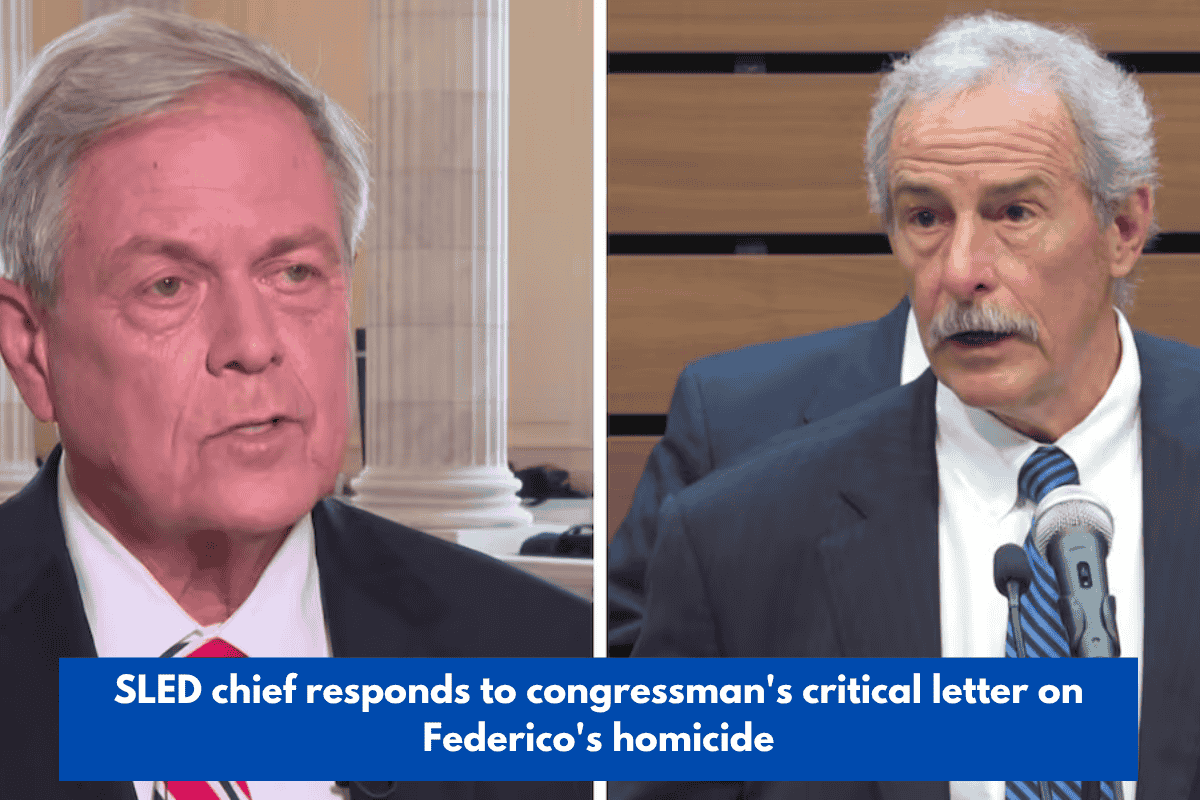As the case of Logan Federico’s alleged killer, Alexander Dickey, continues to dominate national and state politics, South Carolina Law Enforcement Division Chief Mark Keel has responded to Congressman Ralph Norman, who claimed SLED failed to accurately maintain Dickey’s criminal record.
In a scathing letter dated Oct. 9, Norman challenged Keel to explain why some of Dickey’s previous crimes were missing from his criminal record, as keeping rap sheets is an SLED function. The congressman also claimed that the state’s top law enforcement agency was to blame for Dickey having the opportunity to kill Federico while burglarizing a Columbia home in May.
“An incomplete rap sheet is not a clerical error; it is a public safety failure with deadly consequences,” Norman wrote in his letter. “Logan Federico is dead because a violent repeat offender’s record was full of holes.”
In a letter issued Friday, Keel responded that while his agency is responsible for maintaining criminal records, doing so accurately requires local law enforcement agents to promptly submit a defendant’s fingerprints to the agency each time they are charged with a new crime, even if they are already incarcerated, which did not occur in Dickey’s case.
Furthermore, Keel stated that he refused to engage in a political game following Federico’s death.
“What I will not do is stand by while politicians play politics where a young, innocent girl was tragically killed,” Keel posted on Facebook. “I will not allow the integrity of SLED and our hardworking employees to be unduly tarnished in exchange for political talking points.”
Dickey had over three dozen prior arrests, including 25 felony charges, but he was still free when he murdered Federico.
Norman’s letter addressed charges filed against Dickey in 2014 that were never added to his criminal record.
Dicky was arrested for grand larceny on August 14, 2014, and while still incarcerated at the Lexington County Detention Center, he was charged with seven additional counts of burglary and larceny, none of which were ever added to his rap sheet.
Keel pointed to the detention center when he acknowledged the error.
“For criminal charges to attach to a criminal history when a subject is served with additional charges while already incarcerated, the subject MUST be reprinted on the new charges and the fingerprints sent to SLED,” Keel instructed. “This is absolutely known by every detention center and prison.”
The Lexington County Sheriff’s Department, which runs the county’s detention center, did not immediately return a request for comment. Current Lexington Sheriff Jay Koon took office in 2015, after the alleged error would have occurred.
Keel stated in the letter that he previously informed Norman that in August 2024, SLED provided a training video on fingerprinting procedures to the South Carolina Criminal Justice Academy for distribution to the law enforcement community. “The training was assigned to 16,878 individuals, of which 15,701 viewed it,” Keel told me.
In response to Norman appearing to blame SLED for the “holes” in Dickey’s criminal record, Keel stated that the criminal justice system as a whole must be addressed.
“Alexander Dickey, a career criminal, consistently received little punishment for his long list of felonies in Lexington County,” according to Keel. “His incomplete criminal history at the time Logan Federico was tragically murdered is a direct result of a systemic problem that still exists today.”
The conflict between Keel and Norman is not the only source of tension surrounding Federico’s death. South Carolina Attorney General Alan Wilson wrote to Fifth Circuit Solicitor Byron Gibson, urging him to seek the death penalty against Dickey.
Gipson insisted that he would not make such a decision without first reviewing all of the evidence, and Wilson’s office, faced with pushback from state lawyers who saw the letter as an overreach of his authority, stated that they were only looking to see if Gipson’s office would consider the death penalty.














